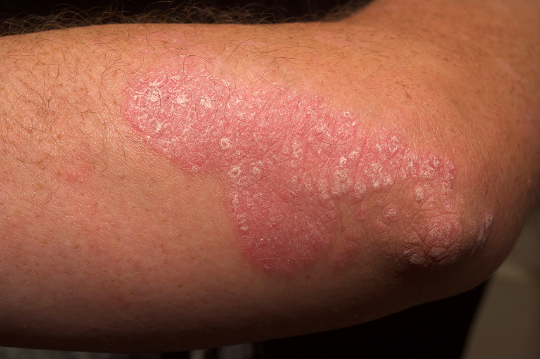PLAQUE PSORIASIS DEFINED
Plaque psoriasis is a common condition characterized by red, itchy, scaly patches on the skin.
These patches, also called plaques, can appear anywhere on the body. They often appear on the knees, elbows, lower back, and scalp.
Psoriasis triggers can include stress, environmental or genetic factors, certain medications, and infections. Psoriasis triggers can vary from person to person.

SO
HERE'S A QUESTION...
WHAT CAUSES PLAQUE PSORIASIS?
Plaque psoriasis begins inside the body, with the immune system.
With plaque psoriasis, the immune system can become “overactive” and create inflammation, ultimately causing skin cells to build up and form plaques. These plaques often cause irritated patches on the skin, resulting from a mix of triggers.

COMMON TRIGGERS OF MODERATE TO SEVERE PLAQUE PSORIASIS

Genetics: If psoriasis runs in your family, you may be more likely to develop it as certain genes can be linked to the condition.
Key Triggers: While triggers vary between individuals, flare-ups are often caused by stress, skin injuries, infections, medications, or even environmental changes.
SYMPTOMS OF MODERATE TO SEVERE PLAQUE PSORIASIS
The symptoms of moderate to severe plaque psoriasis can look different from person to person.
Symptoms may include:
- Red patches of skin covered with thick, silvery scales
- Small scaling spots
- Dry, cracked skin that may bleed or itch
- Itching, burning, skin tightness, or stinging



HOW IS MODERATE TO SEVERE PLAQUE PSORIASIS DIAGNOSED?
Chronic plaque psoriasis is diagnosed by a healthcare professional—often a primary care provider or a dermatology (skin) specialist.
PLAQUE PSORIASIS TREATMENT OPTIONS
may be prescription or over-the-counter and include:
An oral tablet or pill:
|
Cream or ointment: |
Shots or injections: |
UVB (light) therapy: |



